Reimagining Parent Engagement in California: Moving from 1.0 to 2.0
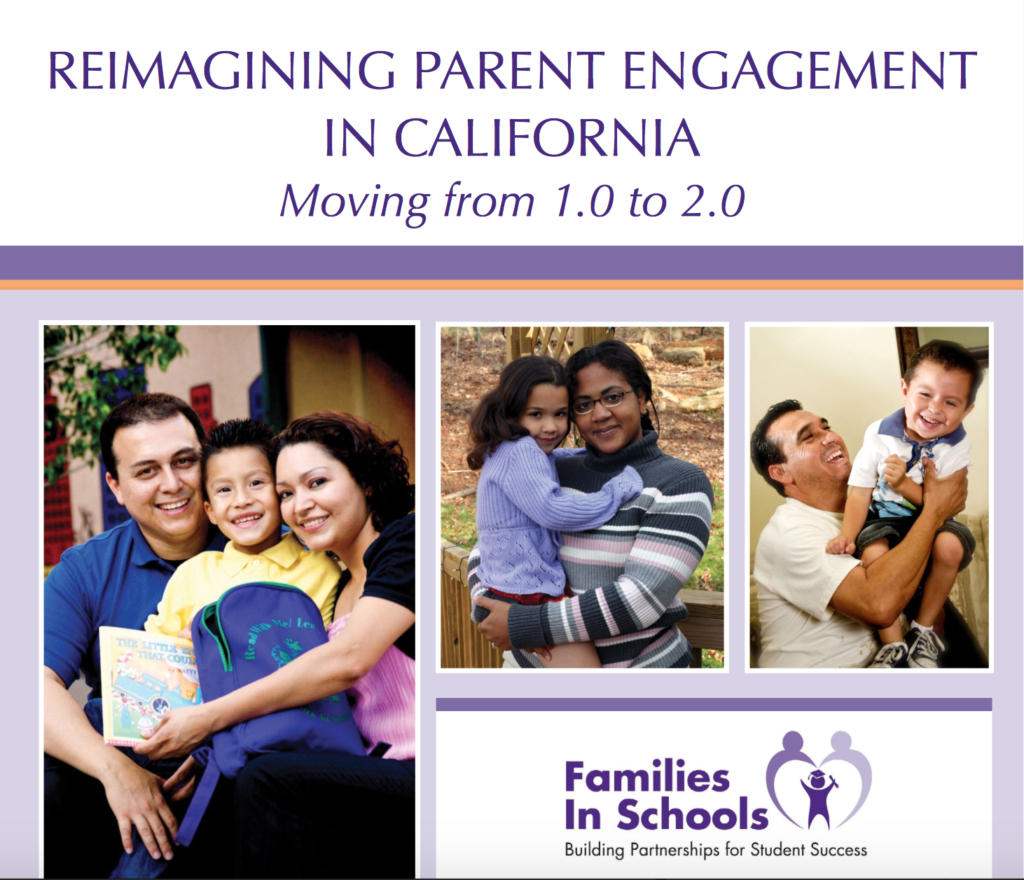
This report explores the characteristics of family-friendly schools. It presents clear indicators in key areas: welcoming environment, effective family-school communication, meaningful resources, shared leadership, conflict resolution, and financial resources. Though designed by family advocates to help the state of California create regulations, this guide could be used by any school to asses its level of family… Read More ›
Parents SEE
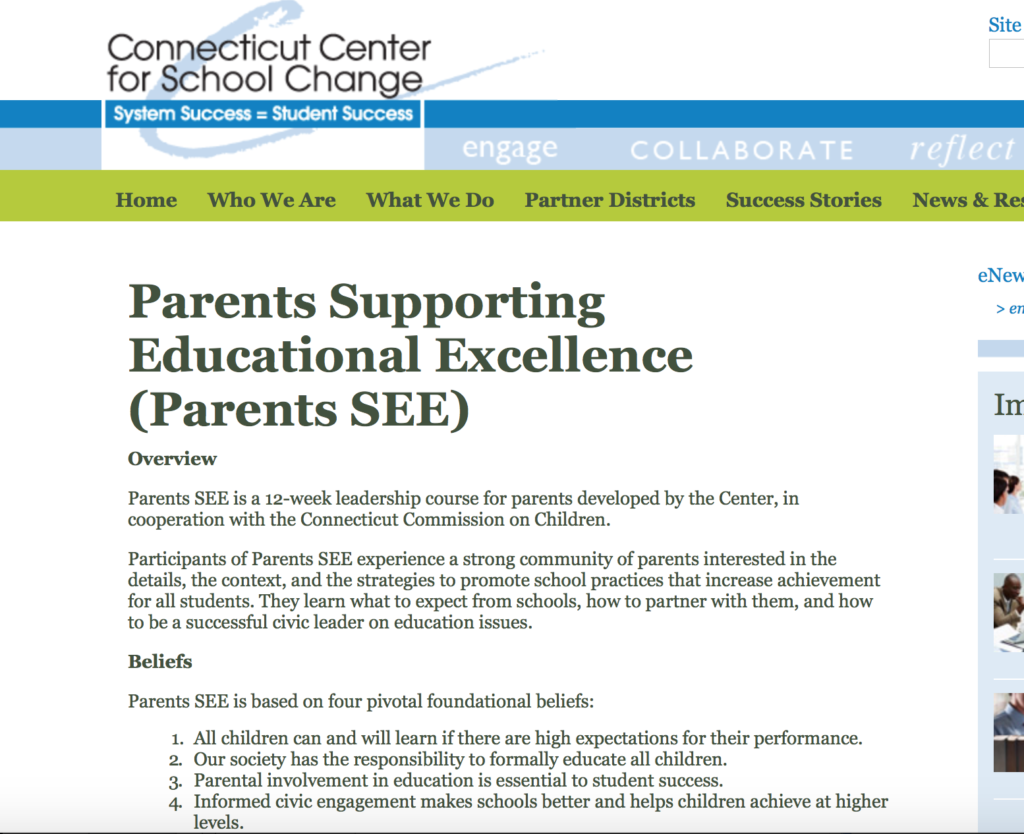
This 12-week leadership program is for parents in Connecticut. Participants learn how to become partners with schools in developing policies and programs to increase student success. Participants of the Parents Supporting Educational Excellence (Parents SEE) program focuses on training to become actively involved in governance and policy development at the school, district, and state levels as community… Read More ›
Parent School Partnership Program (MALDEF)
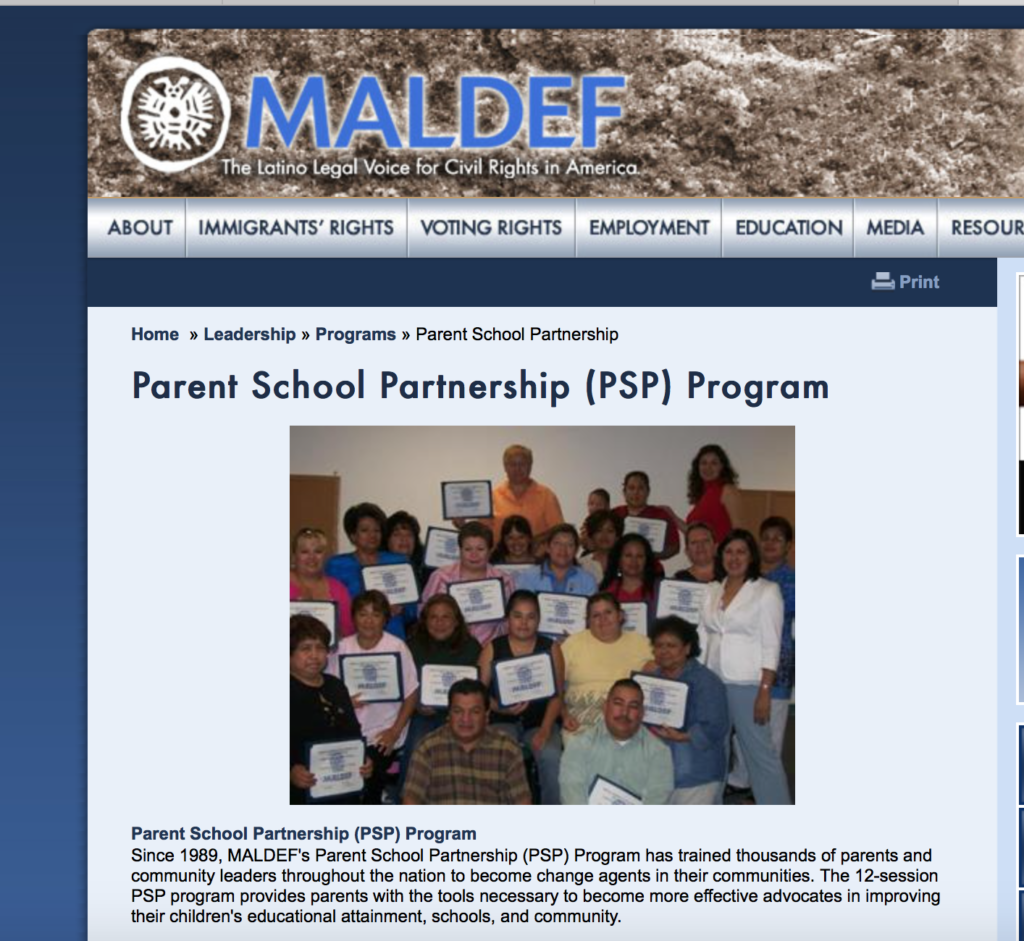
This program established in 1989 by the MALDEF trains parents to become leaders and change agents in their community. The 12-session training covers topics that introduce parents to the school system such as parents rights and responsibilities, parent/teacher partnerships, how the school and district function, and the path to postsecondary education. It also covers leadership skills such… Read More ›
ASPIRA Parents for Educational Excellence
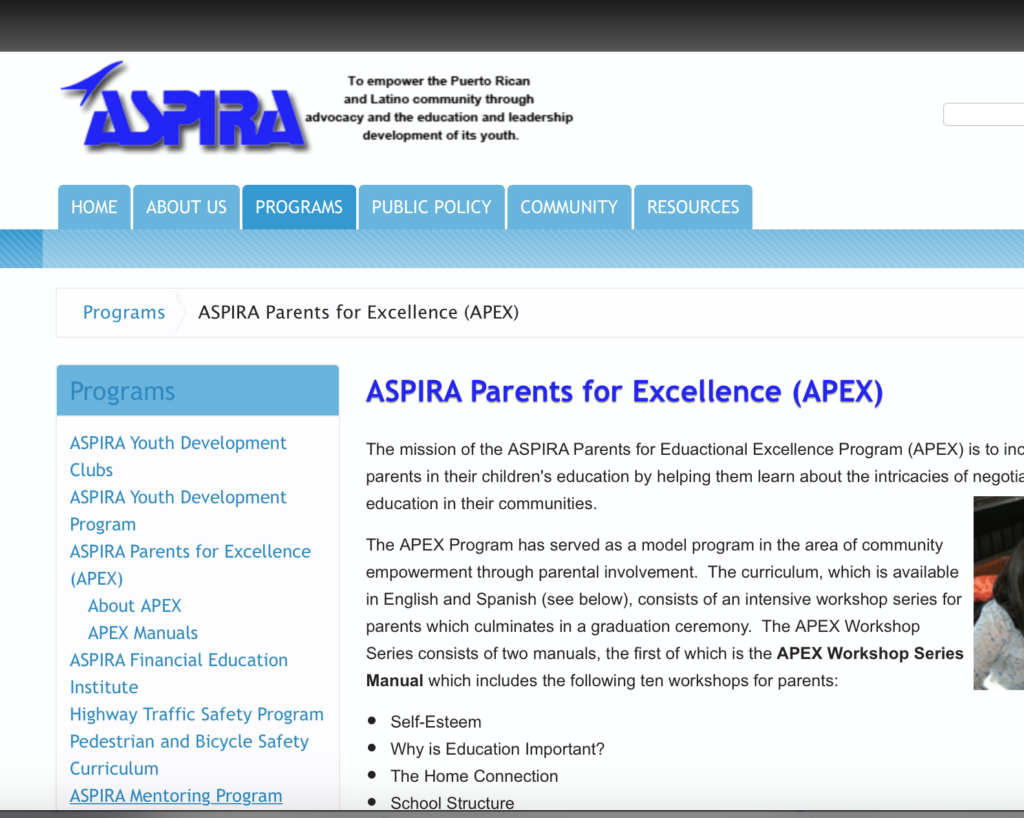
Since 1961 ASPIRA has been dedicated to improving the education and leadership opportunities for Puerto Rican and Latino youth. ASPIRA has state associate programs in 8 states, including Connecticut, Delaware, and Massachusetts, and works with partner CBOs across the country. In addition to their youth development programs, they also offer a parent leadership program, ASPIRA… Read More ›
Building Local Leadership for Change: A National Scan of Parent Leadership Training Programs
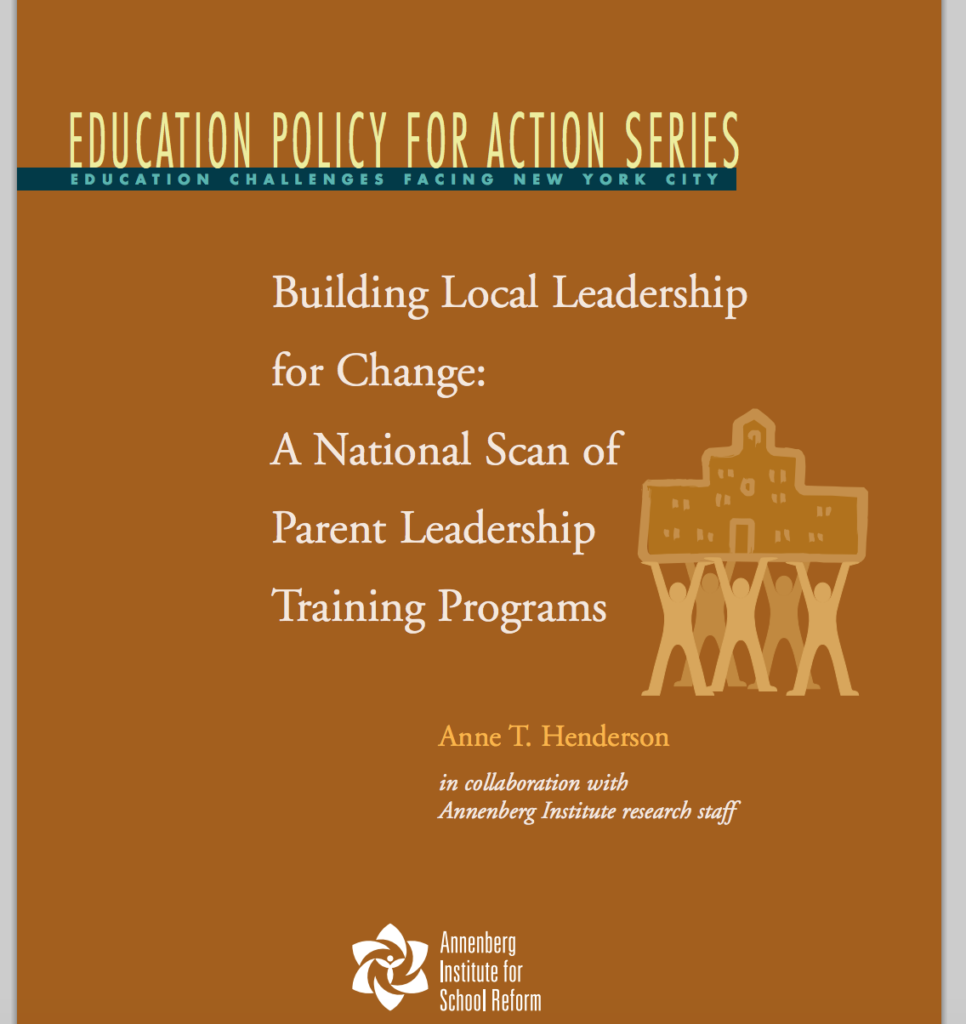
This report, while written to inform the development of parent training centers in NYC, provides an excellent overview of four exemplary parent training programs that may be of interest to any school or district that wants to begin or strengthen their own program. A scan of national programs revealed four major types of parent training… Read More ›
A Guide for Parents: Helping Your Child Succeed in School
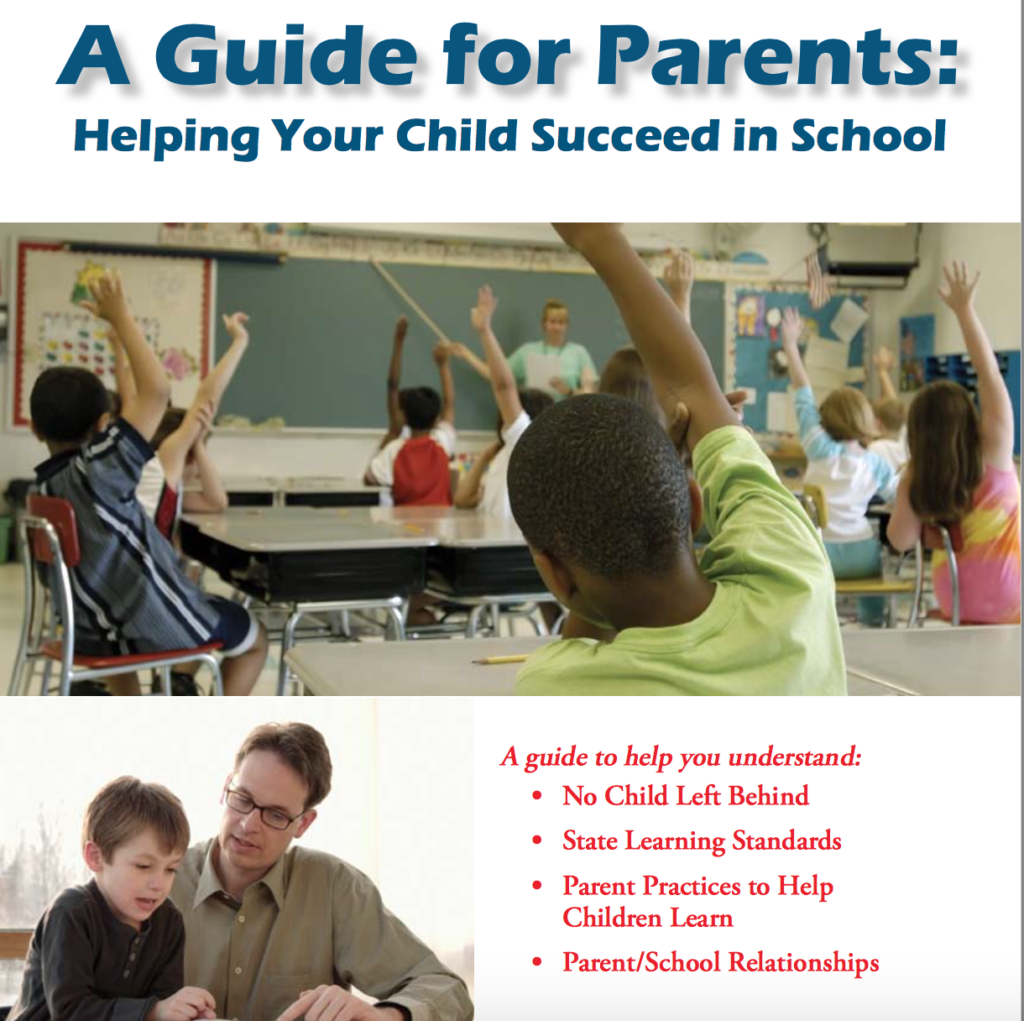
This short guide, developed in 2006, provides parents with tips to support their children’s learning. It addresses relationships, routine, and expectations at home as well as the parent/school interactions that support academic development such as communication, participation in activities, and support for homework. Note: The guide also offers advice on how to understand No Child Left… Read More ›
A Parents Guide to 21st Century Learning
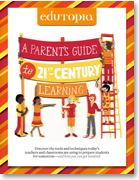
This short guide introduces parents to 21st century learning in all grade levels. Through short vignettes it provides examples of what classrooms today look like at the elementary, middle, and high school levels. In particular it explores how the skills of collaboration, creativity, communication, and critical thinking are taught alongside content at each age level.… Read More ›
Know Your Rights/ Derechos Educativos Federales Folleto
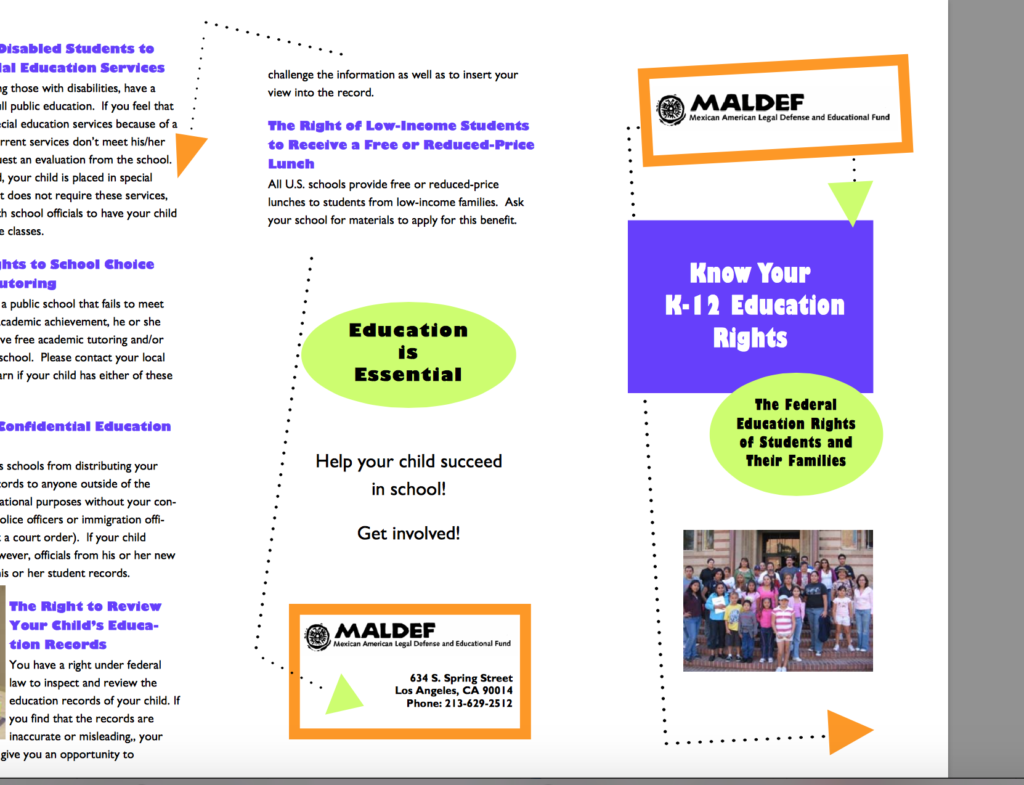
This pamphlet developed by the Mexican American Legal Defense and Educational Fund describes federal education laws relevant to parents. Using parent-friendly language it provides an overview of the right to review your child’s records, the right of disabled students to receive special education services, the right of immigrant students to equal access to k-12 public… Read More ›
Student Experiences with Student Centered Learning
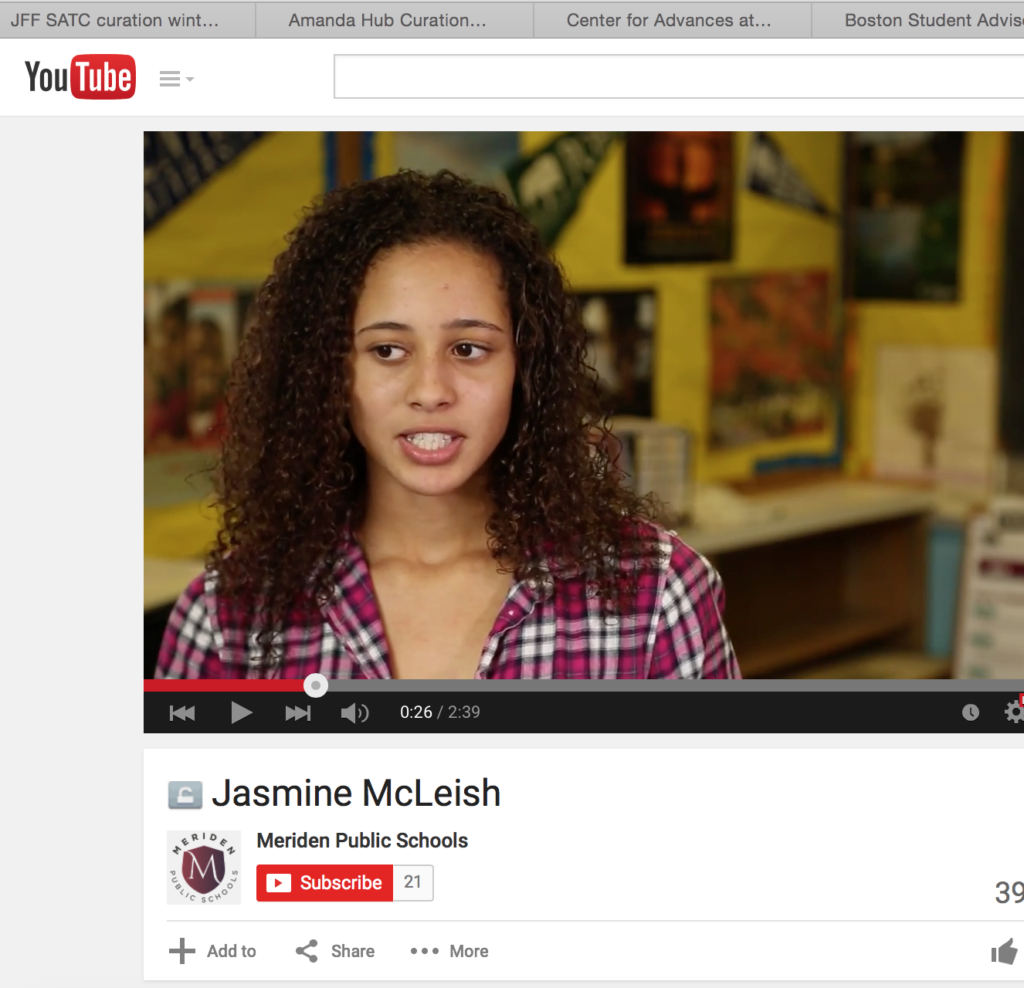
This video series highlights the experiences of students in Meriden Public Schools in Connecticut. The first video provides an overview of students’ thoughts on several key components of student-centered learning: collaboration, use of technology, choice, real world application, and voice/communication. The following nine video clips each feature a student. Students discuss the use of technology… Read More ›
Adobe Youth Voices
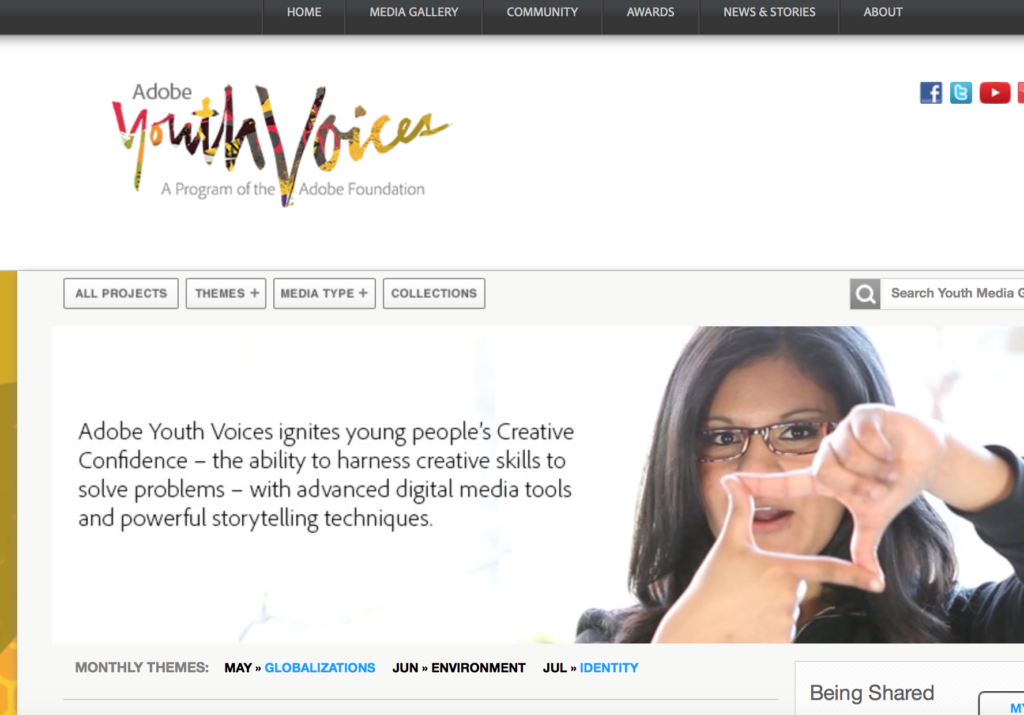
Adobe Youth Voices works to engage and inspire youth, aged 13-19, to get involved in their communities and build creative confidence, a skill much needed for the 21st century. The organization partners with community and youth development organizations in over 60 countries and provides professional development to educators to support student’s development of digital media… Read More ›
Turn Up the Volume: The Students Speak Toolkit
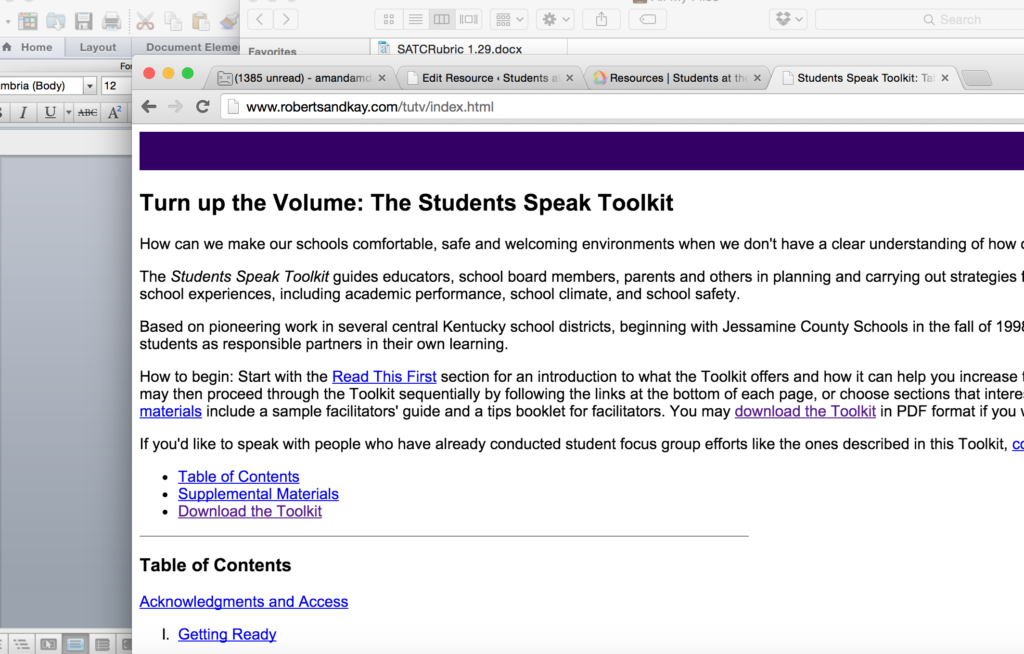
This toolkit is designed to help any school or district conduct focus group research with students to learn their opinions about school and learning experiences. It provides detailed steps of the process to select a working team made up of adults and students, choose your research topic, plan the logistics, facilitate the focus groups, and… Read More ›
Student Voice Twitter Conversations
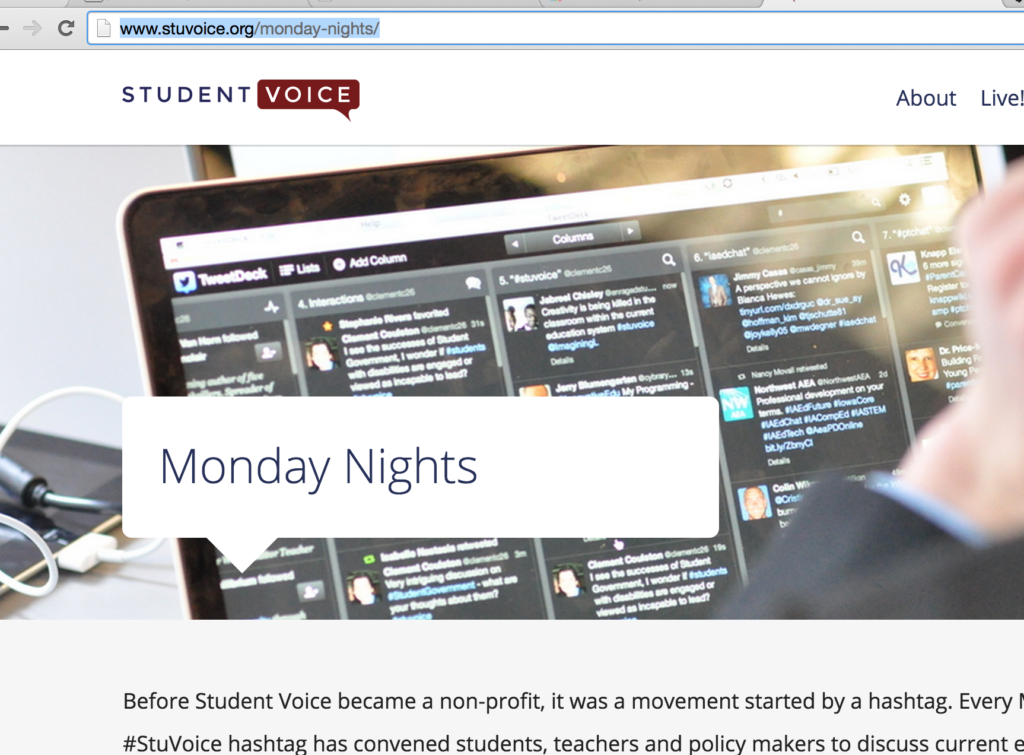
This Twitter feed created by a group of students in 2012: Student Voice (#stuvoice) hosts weekly conversations for students, teachers, policymakers, and key stakeholders to discuss current topics in conversation. Archives of selected Monday night twitter chats and video chats are available on the Student Voice website. The group and in-person education summits in dozens of countries… Read More ›